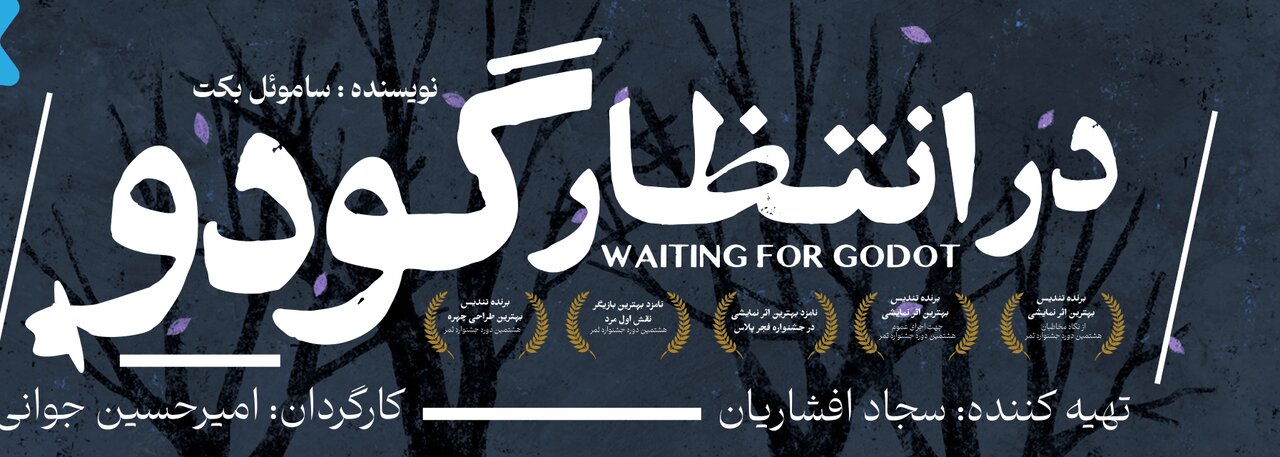Tehran’s Homa Hall hosting “Waiting for Godot”
TEHRAN- An adaptation of Irish novelist and theater director Samuel Beckett’s 1953 play “Waiting for Godot” is currently on stage at Tehran’s Homa Hall. Amir Hossein Javani is the director of the play, which will remain on stage until December 3. Amir Mohammad Rafikhah, Saeid Ahmadi, Mohammad Hossein Qasemi and Mojtaba Bayat are the main


TEHRAN- An adaptation of Irish novelist and theater director Samuel Beckett’s 1953 play “Waiting for Godot” is currently on stage at Tehran’s Homa Hall.
Amir Hossein Javani is the director of the play, which will remain on stage until December 3.
Amir Mohammad Rafikhah, Saeid Ahmadi, Mohammad Hossein Qasemi and Mojtaba Bayat are the main members of the cast for the play.
“Waiting for Godot” was originally published in 1952 in French as “En attendant Godot”. It was a true innovation in drama and the Theatre of the Absurd’s first theatrical success.
“Waiting for Godot” consists of conversations between Vladimir and Estragon, who are waiting for the arrival of the mysterious Godot, who continually sends word that he will appear but who never does.
They encounter Lucky and Pozzo, they discuss their miseries and their lots in life, they consider hanging themselves, and yet they wait.
Often perceived as being tramps, Vladimir and Estragon are a pair of human beings who do not know why they were put on earth; they make the tenuous assumption that there must be some point to their existence, and they look to Godot for enlightenment. Because they hold out hope for meaning and direction, they acquire a kind of nobility that enables them to rise above their futile existence.
“Waiting for Godot” has become one of the most well-known and celebrated plays of the 20th century, earning critical acclaim for its unique approach to existential themes and its innovative use of language.
The play was first performed in Paris in 1953 and was an instant success, winning the prestigious Prix de la Critique award for best play. The play’s success quickly spread, with performances taking place all over Europe and eventually reaching the United States in 1956.
Over the years, “Waiting for Godot” has been performed in countless theatres around the world, with each new production offering its own interpretation of the play’s complex themes and symbolism. The play’s minimalist set, sparse dialogue, and absurdist humor have proven to be a challenging yet rewarding experience for actors, directors, and audiences alike.
“Waiting for Godot” has also been adapted into various forms of media, including a 2001 opera by composer Phillip Glass and a 2005 film adaptation directed by Michael Lindsay-Hogg.
In 1969, Samuel Beckett was awarded the Nobel Prize in Literature for his contributions to modern drama, with “Waiting for Godot” being cited as one of his most significant works.
Beckett (1906–1989) was an Irish-born Nobel Prize-winning novelist, dramatist, poet, and translator, renowned for his existentialist themes. His works often explore bleak and tragicomic experiences of life, employing black comedy and absurdity. As his career progressed, Beckett’s writing became increasingly minimalist, featuring linguistic experimentation and techniques like stream of consciousness and repetition. Living primarily in Paris, he wrote in both French and English and was involved in the French Resistance during World War II, earning the Croix de Guerre in 1949.
SAB/
